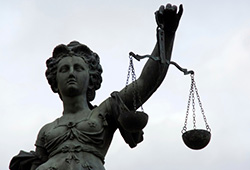 It has now been nearly six months since the landmark Spokeo v. Robins case was decided by the Supreme Court, and courts across the country have begun to interpret the case. Spokeo held that a plaintiff must be able to show actual injury to have constitutional standing to sue under the Fair Credit Reporting Act (FCRA), even though the statute also independently permits plaintiffs to recover statutory and punitive damages in certain circumstances. Spokeo’s holding may not be as far reaching as many thought, however. Two district court cases recently concluded that, where a statute protects a consumer’s privacy interest, the invasion of privacy itself is sufficient to show injury and satisfy the constitutional standing requirement.
It has now been nearly six months since the landmark Spokeo v. Robins case was decided by the Supreme Court, and courts across the country have begun to interpret the case. Spokeo held that a plaintiff must be able to show actual injury to have constitutional standing to sue under the Fair Credit Reporting Act (FCRA), even though the statute also independently permits plaintiffs to recover statutory and punitive damages in certain circumstances. Spokeo’s holding may not be as far reaching as many thought, however. Two district court cases recently concluded that, where a statute protects a consumer’s privacy interest, the invasion of privacy itself is sufficient to show injury and satisfy the constitutional standing requirement.
The first case, Fraser v. Wal-Mart Stores, Inc., No. 2:13-cv-00520-TLN-DB (E.D. Cal. Oct. 17, 2016), held that Spokeo did not mandate dismissal of a class action under the California Song-Beverly Credit Card Act (Song-Beverly Act), which prohibits collection of “personal identification information” in connection with credit card transactions. Wal-Mart moved to dismiss the case, arguing that the plaintiffs lacked standing under Spokeo because they could not show that they were injured merely because Wal-Mart collected zip codes from them. The court disagreed, holding that, in certain cases where the purpose of a statute is designed to protect consumer rights, the risk of harm alone is sufficient to confer standing, where the plaintiff can show a statutory violation. The court concluded that the Song-Beverly Act was one such statute because it was designed “to protect consumers from harms such as abuse by retailers of private consumer information.” Since the plaintiffs had adequately alleged a violation of the Song-Beverly Act, the court concluded that they had standing and and could survive a motion to dismiss on that ground.
In ruling that the plaintiffs had standing, the Fraser court also distinguished Hancock v. Urban Outfitters, Inc., No. 14-7047 (D.C. Cir. July 26, 2016), which dismissed a nearly-identical case because the plaintiffs did not allege “any invasion of privacy, increased risk of fraud or identity theft, or pecuniary or emotional injury.” The Fraser plaintiffs, by contrast, alleged that Wal-Mart’s actions exposed them to “undesired marketing contact, credit card fraud, identity theft, and even stalking,” which was an allegation of risk of harm that the Fraser court concluded was sufficient to overcome the Spokeo standing hurdle.
The second case, LaVigne v. First Community Bancshares, Inc., No. 1:15-cv-00934-WJ-LF (D.N.M. Oct. 19, 2016), involved a claim under the Telephone Consumer Protection Act (TCPA), in which the plaintiff alleged that the defendants placed automated telephone calls to her cell phone, in violation of the statute. The defendants moved to dismiss the case, arguing that the plaintiff had no standing under Spokeo because, despite the alleged violation of the TCPA, the plaintiff could not demonstrate that she suffered any concrete injury as a result of the call. The court disagreed, finding that the TCPA’s purpose was to provide a redress for invasion of privacy—which is a concrete harm that “actually exists” and which “is sufficient to confer standing on an individual suing to protect that interest.”
In contrast to these more conservative applications of Spokeo, the U.S. Chamber of Commerce recently submitted an amicus brief in a case before the Second Circuit—which is now considering the application of Spokeo in the context of a TCPA claim—suggesting that there are grounds for courts to adopt a broader interpretation of the Supreme Court’s ruling. In urging the Second Circuit to conclude that the plaintiffs lack standing under the TCPA, the Chamber noted that the Supreme Court stated that Spokeo’s ruling was intended, at least in part, to prevent “abusive, lawyer-driven litigation in which uninjured plaintiffs strain to identify technical statutory violations in the hopes that the costs and risks of litigation will cause businesses to settle claims brought on behalf of class members who have often suffered no actual harm and will receive no benefit.” See Leyse v. Lifetime Entertainment Services, LLC, No. 16-1425 (2d Cir.). Whether courts follow the rationale of the Fraser and LaVigne cases, agree with the Chamber of Commerce’s argument, or land somewhere in between, the breadth of Spokeo’s impact is still far from settled. LenderLaw Watch will continue to stay abreast of Spokeo developments and will bring you updates as they arise.

